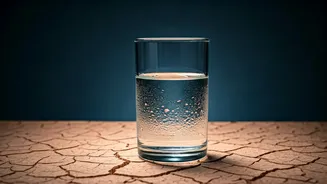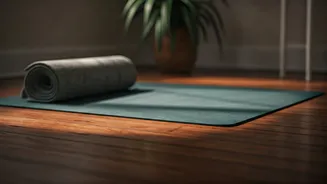Dehydration's Impact
The human body is composed of a significant proportion of water, crucial for numerous physiological processes. When insufficient water is consumed, the
body becomes dehydrated. This lack of hydration can manifest in different ways, including the appearance of dark circles under the eyes. The skin around the eyes is exceptionally thin and delicate, making it more susceptible to showing signs of dehydration. When the body lacks sufficient fluids, the blood vessels under the eyes constrict. This can result in a pooling of blood, which becomes more visible and leads to the appearance of dark circles. Also, dehydration can cause the skin to look dull and sunken, further emphasizing the dark circles.
Causes and Solutions
Several factors besides dehydration can contribute to dark circles. These include genetics, allergies, sleep deprivation, and aging. However, understanding the impact of hydration can provide an essential starting point for improving their appearance. To tackle dehydration-related dark circles, increasing water intake is the simplest and most effective solution. Experts recommend drinking the appropriate amount of water daily. This amount varies depending on factors such as activity level, climate, and overall health. Apart from drinking plain water, consuming hydrating foods such as fruits and vegetables also helps. Additionally, limiting caffeine and alcohol, which have diuretic effects, can help the body retain more water. Adequate sleep and a balanced diet are crucial for overall skin health and can indirectly contribute to reducing dark circles.
Beyond Hydration Alone
While hydration plays a vital role in addressing dark circles, it is not always a complete solution, particularly if other contributing factors are involved. In addition to drinking plenty of water, people should consider other strategies. These might include using over-the-counter creams containing ingredients like caffeine or retinol, which can help improve blood circulation and reduce the appearance of dark circles. Applying cold compresses can also constrict blood vessels and reduce swelling. However, it's essential to consult with a dermatologist if the dark circles persist, as they may suggest more targeted treatments. Remember, a comprehensive approach involving proper hydration, a healthy lifestyle, and potential skincare solutions is often needed for optimal results.


















